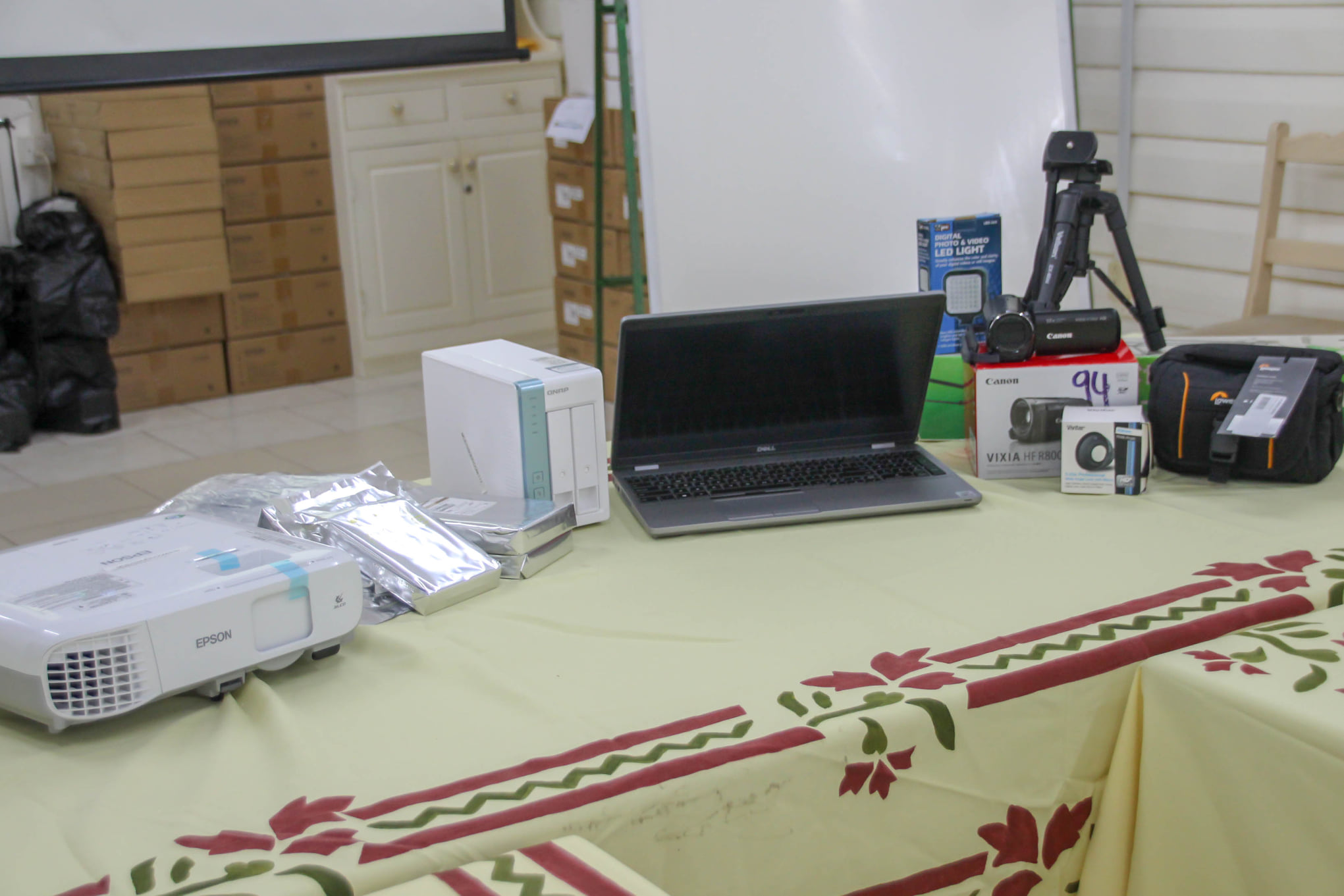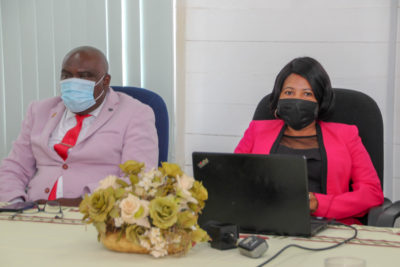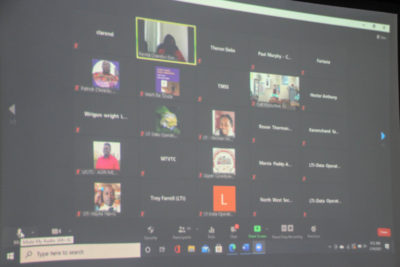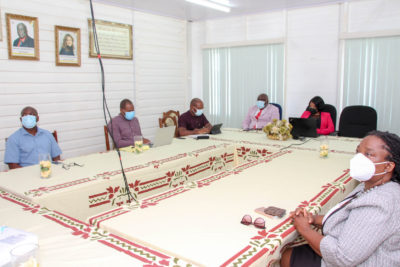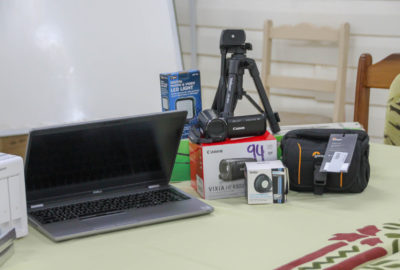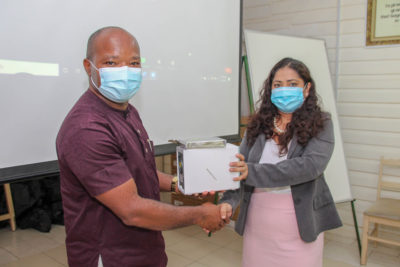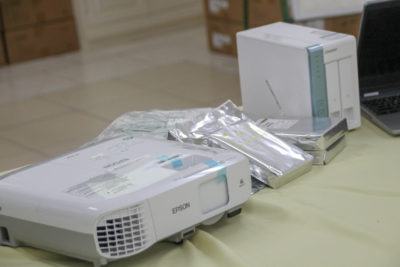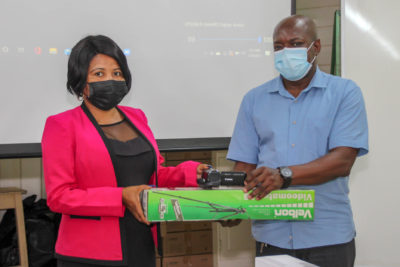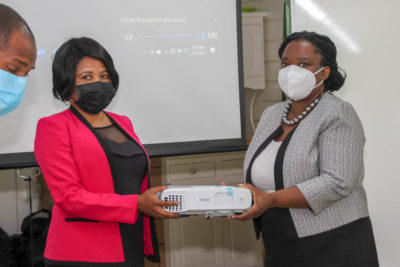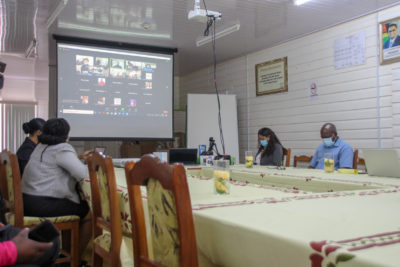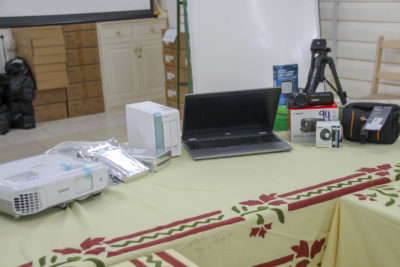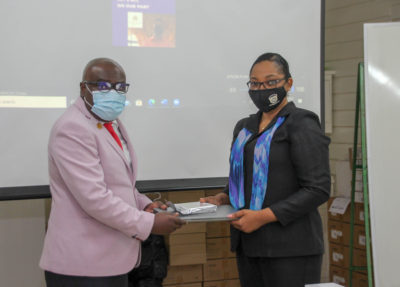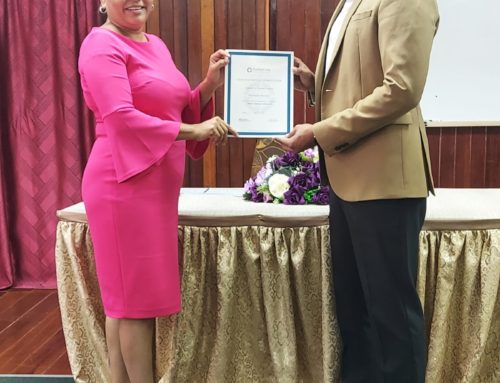The Technical and Vocational Education and Training (TVET) institutions across Guyana will now be fully equipped to facilitate online learning. The launch of the TVET Online Training was held today at the Government Technical Institute on Woolford Avenue.
Coordinator of the Guyana Skills Development and Employability Project (GSDEP), Mr. Theron Siebs explained that the initiative was birthed by the COVID-19 pandemic last year when schools were closed. He said that the Caribbean Development Bank (CDB) which is funding the GSDEP was approached to repurpose a part of the loan to purchase the Information and Communication Technology (ICT) equipment for the institutions.
After the approval was given by the CDB, Mr. Siebs explained that the United Nations Development Program (UNDP) was approached to fast track the purchasing of the items at a cost of over $65M. The items include 138 laptops, 12 tablets, 40 camcorders, 128 projectors and 20 cloud storage devices.
These items will be distributed among identified Secondary Schools that are piloting the Caribbean Vocational Qualification and the 10 TVET institutions across Guyana which are:
1. The Government Technical Institute (GTI)
2. Linden Technical Institute (LTI)
3. New Amsterdam Technical Institute (NATI)
4. Guyana Industrial Training Centre (GITC)
5. Essequibo Technical Institute (ETI)
6. Upper-Corentyne Industrial Training Centre (UCITC)
7. Mahaicony TVET Centre
8. Leonora TVET Centre
9. Carnegie School of Home Economics (CSHE)
10. Craft Production and Design Department (CP&DD)
The Chief Education Officer, Dr. Marcel Hutson said that today’s launch and handing-over ceremony was a significant occasion as it relates to TVET. He said that the initiative to take TVET online is a testimony to how the sector can be improved. “We are keen on reforming TVET and you will see it manifested in our strategic plan, you will see that manifested in our budgetary allocation in terms of how we intend to reform TVET in our country”, the CEO noted.
He said that persons must adapt quickly so that Guyana does not find itself in a position where TVET education is stagnated. He said that the equipment that will be given to these institutions are integral to the transformational process.
Ms. Africo Selman, Advisor to the Honourable Minister of Education Priya Manickchand said today that the Ministry of Education and the Government of Guyana have recognised that without ICT, concepts like equal access to education and education for all would simply be slogans.
She added that without ICT the teachings of educators cannot be dispensed equitably and fairly. Ms. Selman noted that the handing-over of the equipment takes the Ministry of Education and the Government of Guyana closer to eliminating the gaps between the coastland and the hinterland.
Deputy Chief Education Officer (Technical), Mr. Patrick Chinedu Onwuzirike said that ICT and TVET are enablers to lifelong learning. He said that the TVET sector believes that every Guyanese can learn a skill and as such, there is the intention to deliver TVET education across Guyana.
He noted that within the Ministry, one of the indicators of how well TVET is doing is to assess how many hinterland students attend TVET institutions on the coast. He said that over the years, dorms have been used to increase the number of students.
According to Mr. Onwuzirike, with TVET education now being offered online, persons from the hinterland communities can enrol into those institutions on the coast without leaving their communities except when it is necessary for practical exercises.
He said that with the Deputy Chief Education Officer (Amerindian and Hinterland Education Development), Mr. Marti DeSouza, a plan has been conceptualized to work with the Regional Democratic Councils for the Hinterland Regions to have students in those communities brought to the coast to benefit from practical training when it is necessary. “So at the end of the day, every child, no matter where you are, there is going to be that possibility for you to acquire a skill as you move on in life,” he said.
He said that with the earlier closure of schools due to the Coronavirus, the TVET sector was forced to develop new ways to expand its operation to continue providing training remotely. He said that this gave birth to TVET now being able to go online. He said that over the past few months, TVET institutions have acquired Zoom and Moodle. He said that over 200 lecturers, instructors and administrative staff were trained to use these platforms for training.
He noted, however, that the sector is cognizant that all of the training cannot be taught to students online. “So we devised a means to make sure that we keep people safe, to ensure that when we have the need for face to face training, practical exposures, practical assessments or demonstrations, we have to timetable students in such a way that they can maintain social distancing in the workshops and the labs,” the DCEO (Technical) explained.
Divisional Chief of the Caribbean Development Bank, Ms. Deidre Clarendon said that COVID-19 over the past year has transformed in significant ways how persons live, work and interact with each other.
She said that the TVET skills training sector has not escaped the impacts of COVID-19 and in fact, has been uniquely affected. She said that according to the International Labour Organization, over 60 per cent in Latin America and the Caribbean are still experiencing disruptions to their learning.
Ms. Clarendon said that at the commencement of COVID-19, the CDB took a multifaceted approach to assess the impact of the pandemic on borrowing countries to offer a range of options to mitigate those impacts, particularly the education and training sector. She said that the CDB is happy to collaborate with the Government of Guyana to repurpose CDB Project financing under the GSDEP for the procurement of the ICT equipment.

